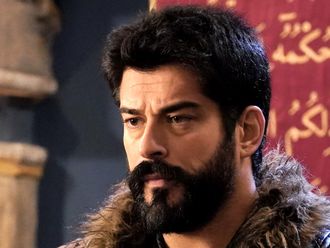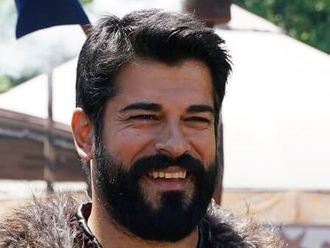Fifty years after independence, the West African nation remains refreshingly unbowed to tourists and commercial pressure. "After all," I said casually, "This is probably the last time I'll go to Cameroon."
This remark was met by surprise. Just short of my 35th birthday, it's maybe a bit premature to say never again to anything.
But time is a finite cake that can only be cut so many ways. I thought I was being realistic in a world now crowded with unmissable destinations, once-in-a-lifetime adventures and 1,001 places to see before you die.
Been there, done that
Cultural commentators have noted that unique experiences, not material possessions, are now the top currency.
There's a premium on climbing that mountain, touching that shark or seeing that solar eclipse and then blogging about it, just to make sure all your friends, and the rest of the planet, know what an amazing time you're having. We are what we do, not what we own.
But Cameroon does not appear to figure highly on most bucket lists.
Lost in the woods
"What shall I do on a spare day in Yaoundé?" I asked a local journalist. He looked at me blankly, then ventured: "Maybe go out to the forest."
There was no travel guide in the airport bookshop, only a chapter in Lonely Planet's Africa volume that noted the country's tourism suffers because of volatile neighbours. The Wikitravel website's guide to Cameroon has headings for See and Do, but both are blank.
Not easy to reach
It's also awkward and costly to get to. I flew to Nairobi first, then caught a connecting flight that was seemingly devoid of holidaymakers but did contain a Congolese sports team and dozens of Chinese men.
The language barrier between them and the air stewards may be a regular occurrence in Africa these days.
"I don't trust the Chinese," said my taxi driver, winding past open-air bars where people relaxed, danced and sat on plastic chairs watching football on TVs below dangling lightbulbs. "They don't pass on any knowledge to the Cameroons. They bring their own people. They are here for the minerals, then they will be gone. Our government should remember its children."
Concrete landscape
We passed a new Chinese addition to the landscape of Yaoundé, a music and sports facility that resembles a steel armadillo, or a spaceship. It's an incongruous touch of the Frank Gehrys in a landscape that otherwise consists of blocky concrete, rusty corrugated roofs and a small park where parents show their children fish in the river.
Government ministries are giant Stalinist towers reflecting a touch of central Birmingham.
Drive up into the surrounding hills, however, and it's a different story of lush vegetation and clean air.
I glimpsed that archetypal image of African football that will be seen regularly around next month's World Cup: young men chasing a ball on a pitch of ochre-red dirt surrounded by verdant borders.
Beautiful vistas
At a Benedictine monastery on Mont Febe I found a rocky precipice with sweeping views of the city. Nearby, there were people praying to a Madonna statue carved into a giant boulder and a lone boy lobbing a ball at a basketball hoop. Colourful geckos darted along the ground, as they do all around the city.
I wandered unchallenged into the monastery's arts and crafts museum, a small but potent collection of masks, statues and ornaments. This is bold and brilliant ritual art, some of the faces containing teardrop eyes or giant mouths more alien than human.
It could be the stuff nightmares are made of but feels vital and charged with imagination.
Hard bargain
I shopped for some of it at the arts and crafts market, where hawkers lull their prey into their stalls then beg, flatter and all but rugby tackle them to stop them escaping. There must be seasoned travellers who are world champions at haggling and fending off harassment but I'm not one of them.
Cameroon is celebrating its 50th anniversary of independence. Paul Biya, the president, has reigned for 28 of those. He claims to be Monsieur Propre — Mr Clean — but it's known that corruption is rife.
Football fans
Recently, a journalist, Bibi Ngota, died in prison after apparently being denied medical treatment. Nothing, however, will get international attention like Cameroon's footballers, the Indomitable Lions, when they play in the World Cup.
This, after all, is not a place many people choose to come on honeymoon, or to retire to, or to die in.
As I head for the airport, I'll wonder if I'm ever coming back. Making my first trip to Cuba, Iran or Nigeria feels more urgent. But saying never again feels a little too sad and mortal to bear.












